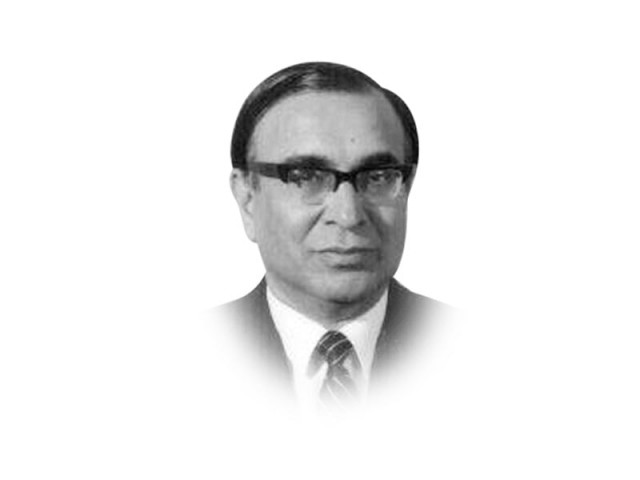Bon(n)fire of the vanities
Bonn 2 produced no substantial mechanism for reconciliation.

Bonn 2 seemed to echo the dissonance that Pakistan itself has experienced with the United States on constructing a viable peace process. Guido Westerwelle, the German foreign minister said that “we have learnt that there is no military solution”. It is not clear whether he spoke for his own country or for most of the weary European members of Nato. US Secretary of State, Hillary Clinton, poured cold water on his speech with the mantra that the coalition would “fight, talk and build”. Afghan President Hamid Karzai was not challenged when he repeated his audacious theory that insurgency had no local Afghan provenance but was driven entirely from outside. No wonder Bonn 2 produced no substantial mechanism for reconciliation.
When Karzai complained of the international community’s interference in elections and other internal issues, Clinton read out a homily to him on electoral reforms, accountability and democratic institutions. He also had to endure blistering criticism from the representatives of the Afghan civil society tuned better to international critiques than to the palace in Kabul.
Karzai made urgent pleas for massive economic assistance but with generosity constrained by European and American economic crises, the potential donors did not rise to his expectations. Bonn 2 took the position that it was not a pledging session which would await the Tokyo conference in July 2012.
With the Taliban conspicuous by their absence and Pakistan staying away, the debate on peace-building was generally reduced to clichés. On progress with the Taliban, Karzai again dodged behind Pakistan. He told Der Spiegel, that “as long as we don’t have a phone number or an address for the Taliban, we have to talk to the Pakistanis, because they know where they are. So far, the Pakistanis still have other objectives than peace in Afghanistan and as long as that doesn’t change, I don’t see an environment to have useful talks with the Taliban”.
Three major factors have impeded the movement towards a meaningful dialogue with the insurgents. One, Washington has pursued its Afghan policy with bewildering internal differences on the relative weight of ‘fight’ and ‘talk’. This gap may conceivably be narrowed if President Obama is now seen not as a peacenik but a cunning leader who would gladly ‘do’ a war as long as he can do it ‘from behind’ and who is now visibly embarked upon containing China economically and militarily. Reconciliation in Afghanistan may simply take a back seat while the military tries to grind down the resistance groups opposed to permanent American bases. Two, Washington has almost wantonly knocked out Pakistan as a close ally in the quest for a negotiated settlement. Pakistan would not abandon the quest for peace and reconciliation in Afghanistan in its own long term interest but the mindless destruction of the Salala check post may hobble its effort anyway. Third, President Obama has not cared to invest energy and ideas in promoting an equitable regional order and instead focused on India in the interest of his new aggressive Asia-Pacific policy.
In the final analysis, reconciliation and reconstruction in Afghanistan may be eclipsed by its role of providing bases to the great chain of American power projection from North Africa to Darwin and some western franchises for its mineral wealth. Under electoral pressures, President Obama is, paradoxically, prolonging the Afghan war. In the worst case scenario, much of the country may just relapse into another bloody civil war after 2014, with the Afghan National Army itself fragmenting on ethnic lines. Pakistan should note that Bonn 2 was nearly consumed by the historical hubris of Great Powers that compulsively seek only the peace of the victors.
Published in The Express Tribune, December 8th, 2011.














COMMENTS
Comments are moderated and generally will be posted if they are on-topic and not abusive.
For more information, please see our Comments FAQ